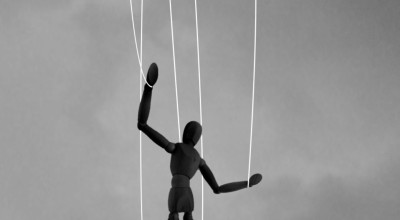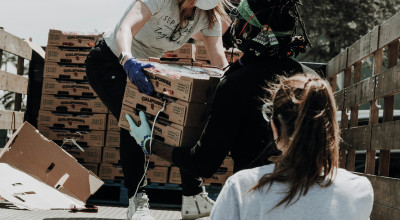Conquering Self-Helplessness
October 28th, 2020
When things don’t go our
way, whether it be something related to school, work, family, or other
relationships, it can be very impactful, depending on the magnitude of said
event. With one-off misfortunes, it can be easy to brush off and ground
yourself in knowing that there are many aspects of your life that you can
control. However, in experiencing a series of unfortunate events, one can start
to feel little-to-no sense of control over their life. They come to believe that
there is no chance of changing their situation, so they don’t even try, even
when there are available opportunities.
This sort of phenomenon
is known as “learned helplessness,” and has been in circulation in
psychological research since the 1960s. It occurs when an animal is repeatedly
subjected to aversive stimuli that is inescapable. Over time, the animal will
no longer take action to avoid this stimulus, even when there is opportunity to
do so. A prime example of this is any substance addiction; an addict may
repeatedly try and fail to quit. They may grow tiresome and start to believe
that nothing they do can fix their situation and ultimately give up. Feeling
this loss of control basically brings about passivity to the specific negative
situation, and could potentially translate to other experiences later on.
Learned helplessness
ties strongly with another psychological construct called the “locus of
control.” This refers to the degree to which an individual feels a sense of
agency in regard to his or her life. Someone with an internal locus of control
believes that they are greatly influential in their own lives and are more
responsible for the events around them. In contrast, someone with an external
locus of control will believe that outside forces dictate their life; these
forces could be random chance, environmental factors, or the actions of
others.
The development of one’s locus of control, as well as learned helplessness, often begins in childhood. Children raised in institutionalized environments are likely to feel learned helplessness early on; similarly, unreliable or unresponsive caregivers elicit this in children as well. For example, say a child needs help with something, but there is no one to aid them, which leaves them feeling incapable of changing their situation. If this happens often, it will only further exacerbate these feelings that will trickle into their adulthood. A child’s helplessness symptoms include:
- Failure to ask for help
- Lack of effort
- Low self-esteem
- Passivity
- Poor motivation
Children experiencing
this may also dwell on the past often, recounting those helpless times, and
conclude that such helplessness will continue into the future. Academics and
any sort of extracurricular activities will also more than likely be affected,
leading to poor grades and lack of performance/commitment to said
activities.
Having learned
helplessness early on can also contribute to depression, anxiety, or both.
Specifically, this can influence the onset, severity, and persistence of conditions
such as generalized anxiety disorder (GAD). In some extreme cases, those with
learned helplessness and GAD may begin to refuse the options meant to help
these problems, such as therapy and medications.
At the same time, a
child’s learned helplessness ties greatly in with their locus of control. Many
believe that having a strong locus of control is an innate personality-driven
trait, however, it is majorly determined by your external environment. Parents
can greatly help to develop their child’s locus of control by encouraging
independence and showing them the association between actions and consequences.
This is not to say that parents shouldn’t be on standby to help children when
needed, but to foster self-determination as early as possible.
As one with learned
helplessness matures into adulthood, any existing anxieties or depression may
worsen. Moreover, a person with this underlying issue may not use or have
learned adaptive responses to difficult situations. This lack of control can
appear in situations where the person is desperately trying to change their
life, whether it be overcoming an addiction, losing weight for health, or
leaving a situation of domestic abuse.
For now, let’s move forward and go over how to overcome learned helplessness, both as a child and as an adult.
To begin, research suggests that early intervention can heavily decrease onset learned helplessness in children. Long-term learned helplessness, in contrast, will require longer-term effort on top of an initial intervention. This effort should include practicing independence and cultivating feelings of resilience, self-worth, and self-compassion. Another direct way to combat self helplessness is engaging is self optimism, wherein you explain events to yourself in a constructive manner and develop a positive internal dialogue.
The most beneficial thing you can do if struggling with learned helplessness is to seek therapy, specifically cognitive behavioral therapy (CBT). Through CBT, patients will be able to identify negative thought patterns that add to their feelings of helplessness and instead replace them with more rational and optimistic thinking. This exercise usually involves analyzing thoughts, challenging ideas, and disputing negative thought patterns. On top of this, through therapy, people can:
- Improve self-esteem
- Address instances of abuse, trauma, and neglect
- Receive support and encouragement
- Work through challenging emotions
- Set goals and tasks for themselves
Some other ways to improve these feelings of helplessness and hopelessness are standard lifestyle changes/additions: meditating, eating a healthful diet, exercising, and practicing mindfulness.
If you or someone you
know has been experiencing feelings of helplessness, do not be discouraged from
reaching out. This is the first, and quite possibly, the most important step in
retaking internal and external control of your life.


